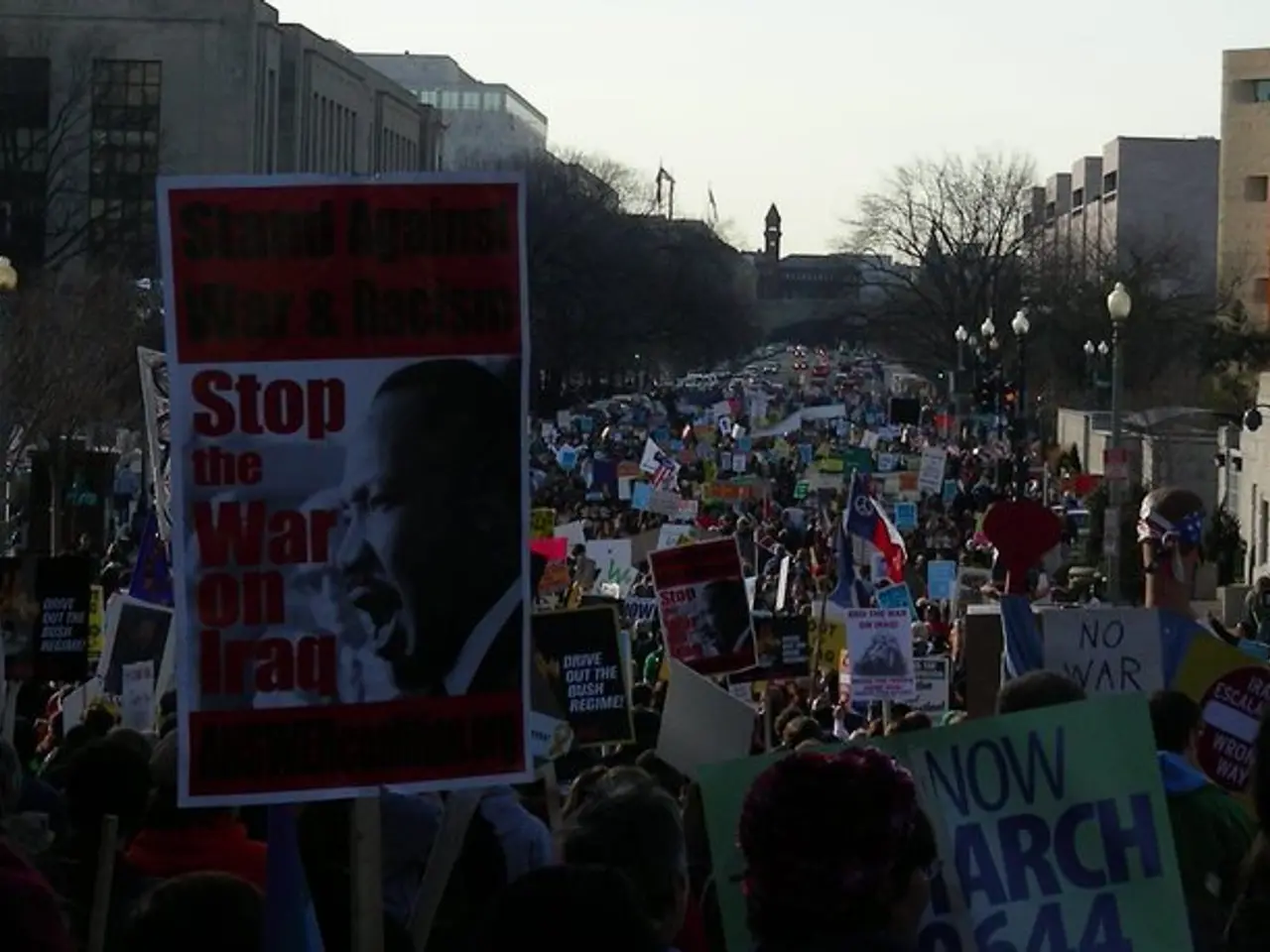Court Affirms Decision Against Trump's Directive Aimed at Altering Birthright Citizenship
The Ninth Circuit Court of Appeals has upheld a nationwide injunction blocking President Donald Trump's executive order that aimed to end birthright citizenship for children born in the U.S. to parents who are undocumented or temporarily present. The Court ruled the executive order unconstitutional because it contradicts the plain language of the Fourteenth Amendment, which grants citizenship to "all persons born in the United States and subject to its jurisdiction" [1][2][4].
Legal Arguments and Reasoning
The Court emphasized that the Fourteenth Amendment's Citizenship Clause unambiguously grants citizenship to nearly all born on U.S. soil regardless of parental immigration status. The executive order’s attempt to restrict this right was found to be in direct conflict with that constitutional text [2][4].
The decision affirmed the district court’s preliminary injunction, highlighting that the plaintiffs (several states and individuals) are likely to succeed on the merits of their claim that the executive order violates the constitutional guarantee of birthright citizenship [2][4].
The Court also dismissed claims from individual plaintiffs already covered by a certified class action, supporting the legal process coordination [4].
Implications
The ruling stops the implementation nationwide of the executive order, protecting the citizenship status of children born in the United States, including those of undocumented or temporary visa-holding parents [3][4]. It marks a significant judicial rebuke of the executive branch’s attempt to unilaterally reinterpret constitutional citizenship provisions without congressional approval.
The decision paves the way for eventual Supreme Court review, as it is the first appellate-level judgement directly addressing the merits of this birthright citizenship dispute [2][4].
The ruling has strong political and social significance, reinforcing foundational constitutional principles and affirming birthright citizenship as a core American promise, as emphasized by attorneys general of states involved in the case [3].
It's important to note that the district court's decision does not address any arguments made by the U.S. Department of Justice in defense of the executive order. The lawsuit was filed by Attorney General Rob Bonta against the Trump administration over an unconstitutional birthright citizenship order. The lawsuit challenging President Trump's executive order on birthright citizenship is still ongoing.
[1] https://www.cnn.com/2021/02/25/politics/ninth-circuit-upholds-injunction-against-trump-birthright-citizenship/index.html [2] https://www.reuters.com/legal/government/ninth-circuit-upholds-injunction-against-trump-birthright-citizenship-order-2021-02-25/ [3] https://www.nytimes.com/2021/02/25/us/politics/ninth-circuit-trump-birthright-citizenship.html [4] https://www.washingtonpost.com/politics/2021/02/25/ninth-circuit-upholds-injunction-trump-birthright-citizenship-order/
The Ninth Circuit Court's ruling on the executive order, regarding birthright citizenship, serves as a significant policy-and-legislation milestone, challenging the President's authority to unilaterally reinterpret constitutional citizenship provisions without congressional approval. This decision, partially based on the Fourteenth Amendment's Citizenship Clause, reinforces the political and social significance of general-news issues surrounding war-and-conflicts, immigration, and human rights. The ruling also marks a step towards policy-and-legislation developments, as it may lead to Supreme Court review and further legislative action.





